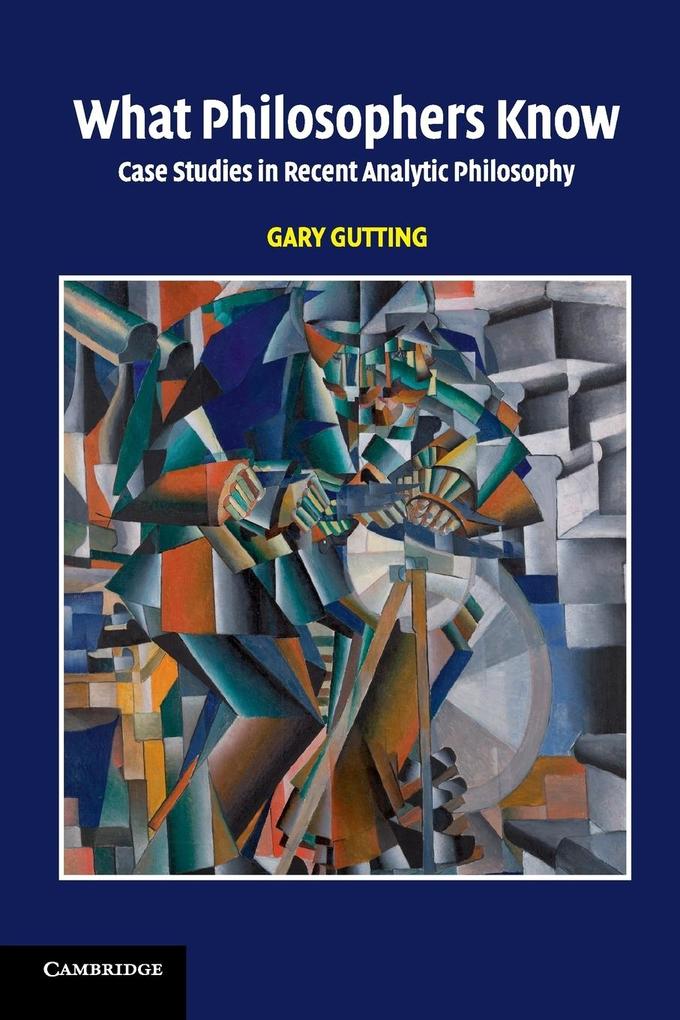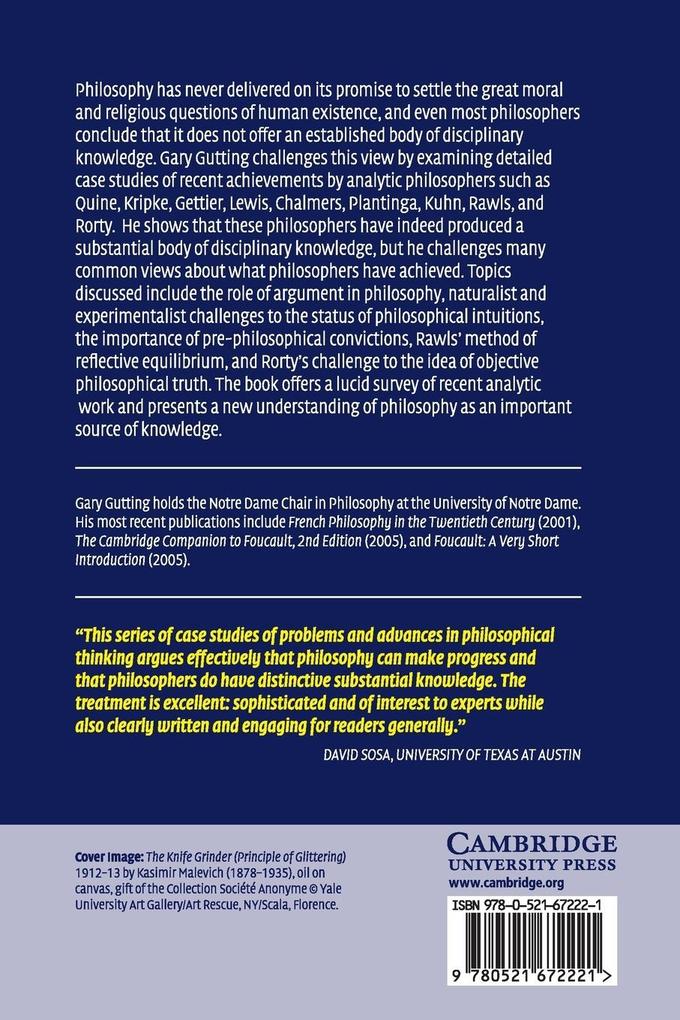Based on detailed case studies of major achievements in recent analytic philosophy, this book both provides a lucid survey of the work of major figures such as Quine, Kripke, Rawls, and Rorty and shows how their work offers a substantive body of philosophical knowledge that even non-philosophers cannot ignore.
Inhaltsverzeichnis
Introduction; Part I. How Does That Go? The Limits of Philosophical Argument: 1. Quine's 'Two Dogmas': argument or imagination?; 2. Argument and intuition in Kripke's Naming and Necessity; 3. The rise and fall of counterexamples: Gettier, Goldman, and Lewis; 4. Reflection: pictures, intuitions, and philosophical knowledge; Part II. Arguments and Convictions: 5. Turning the tables: Plantinga and the rise of the philosophy of religion; 6. Materialism and compatibilism: two dogmas of analytic philosophy?; 7. Was there a Kuhnian revolution? Convictions in the philosophy of science; 8. Conviction and argument in Rawls' A Theory of Justice; Part III. Philosophical Truth and Knowledge: 9. Rorty against the world: philosophy, truth, and objectivity; 10. Philosophical knowledge: summary and application; References.











